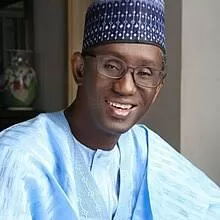
FG DENIES ANY PLAN FOR FRENCH MILITARY BASE IN NIGERIA
The Nigerian government has refuted allegations made by General Abdourahamane Tiani, the head of state in Niger Republic, claiming that Nigeria is collaborating with France to establish a military base in its northern region to monitor Niger, Chad, and other neighbouring countries.
Speaking during an interview with BBC Hausa, the National Security Adviser to President Bola Tinubu, Nuhu Ribadu, dismissed the accusations as baseless and untrue.
“Nigeria has never had any agenda to permit foreign countries to come into our territory and set up military bases,” Ribadu stated.
Ribadu said the revelation made by Tiani came as a shock and surprise to them.
He clarified that Nigeria remains committed to fostering peaceful relations with Niger and would not support or engage in any actions that could destabilize the region.
In the five-minute interview, Ribadu reiterated Nigeria’s dedication to regional stability and cooperation.
He urged for a focus on constructive dialogue rather than unfounded accusations.
The claims by General Tiani come amid heightened security tensions, with accusations that France is planning to establish a terrorist operational centre in Gaba, a forested area in Sokoto State, Nigeria, following the recent coup in Niger.
Nigeria has played a central role in efforts by the Economic Community of West African States (ECOWAS) to resolve the crisis peacefully.
Ribadu said, “Nigeria has no issues with instability or unrest with our neighbouring countries. We coexist peacefully with Cameroon, Chad, and Benin Republic. How, then, can someone claim we are having problems with the Niger Republic?
When asked about General Tiani’s allegation that France is financing the Nigerian government to establish a military base in the North for a potential invasion of Niger at will, Ribadu reiterated that such claims are unfounded and lack credibility.
Ribadu said, “Where did this come from? How could anyone claim that Nigeria would allow a foreign country to establish a military base here to cause havoc or instability for the people of Niger?
“Where would this happen? Nigeria has never had any agenda to permit foreign countries to come into our territory and set up military bases.”
“The British, who colonised Nigeria, have never attempted to bring their military into the country to establish a base,” he added.
“America has tried their best to establish a military base in Nigeria, but the Nigerian government declined their request. After our refusal, they went to Niger, and the Nigerien government accepted their proposal. However, the Nigerien government later realised their mistake and expelled them.”
He continued, “France, on the other hand, ensures that they establish military bases in almost all the countries they colonised. But Nigeria has never agreed to such arrangements with them to establish a military base in our country.
“We never agreed with them to launch anything, even for a day, let alone something that would disrupt peace or cause havoc in Niger. Where would this occur? However, we would never do such a thing.”
“But now, if Niger’s military is fighting with France, they cannot force us to join their fight. Nigeria is not at war with any country, and we have never fought any country in the world. Nigeria will never engage in warfare, and we will never allow any external forces to disrupt the peace and harmony of neighbouring countries,” Ribadu said.
Ribadu stated that the Niger junta leader mentioned some places in Nigeria, indicating a deep knowledge of the country.
He named specific locations, and we are calling on journalists and residents of those communities to investigate for Allah’s sake.
“Please verify if there are any foreign visitors in these areas, let alone connections to France,” he said.
“We want to assure the people of Niger that the Nigerian government will never allow any harm to come to them.
“We have been combating terrorists, bandits, kidnappers, IPOB, and militants in the Niger Delta and other parts of the country. By God’s grace, we have always emerged victorious.
“Nigeria’s neighbouring countries must understand that anything that happens in Nigeria will inevitably affect them as well. The Niger government needs to recognise that Nigeria is not their problem.”
Ribadu further explained that terrorists are the real issue. The problems caused by terrorists in Niger Republic are the same problems they are causing in Nigeria.
“We need to unite and fight these terrorists together. The people of Niger must understand that we are one big family, and any injury to one will inevitably affect the others,” Ribadu said.
He explained that it is unfounded for anyone to claim that the Nigerian government is aiding terrorists, especially when Nigeria itself is grappling with insecurity. He urged Niger’s leaders to reconsider their stance and conduct thorough investigations.
He also warned that if Niger replaces France with other foreign entities or missionaries, they may inadvertently create future problems for themselves.
“They should not allow countries opposing France to establish military bases in Niger. Any nation that comes as a friend today might become a problem for them tomorrow,” Ribadu stated.
He cited an earlier instance where the Nigerian government advised Niger against permitting the establishment of an American military base.
Ribadu said despite the warning, Niger allowed it, only to later regret the decision.
“We are now appealing to Niger to avoid relying on external forces. Nigeria is your family. Let us work together,” Ribadu urged.
He further called on Niger to rejoin the joint task force established with Nigeria, Chad, and other nations to combat Boko Haram and other terrorist groups.
He stressed that Niger’s withdrawal weakened collective efforts and could escalate security challenges.
 Premium News
Premium News